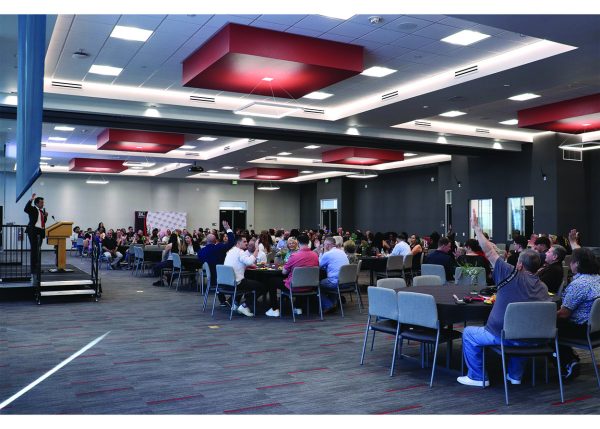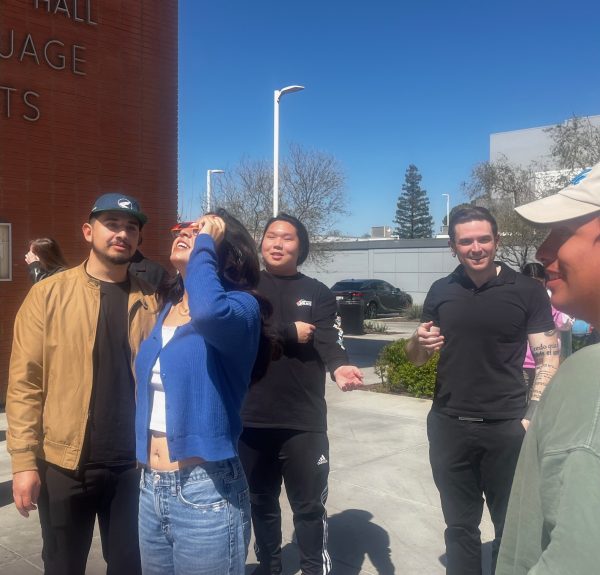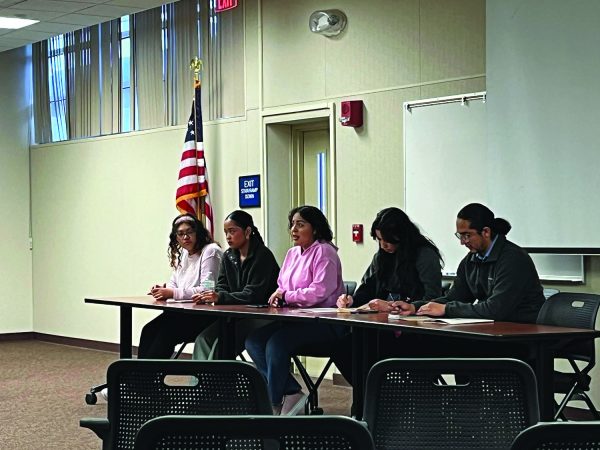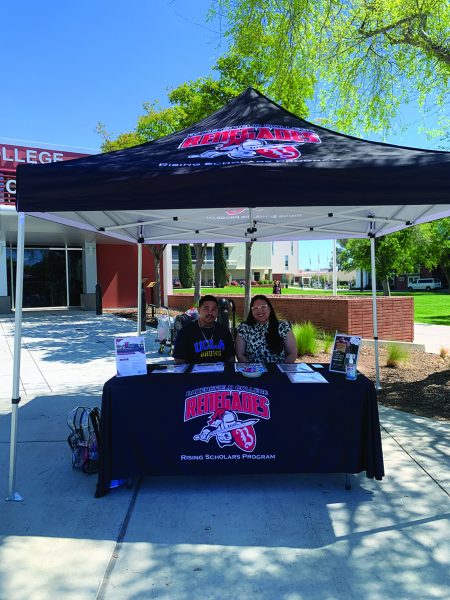Moorpark College Hosts Panel on Black History Month
February 19, 2021
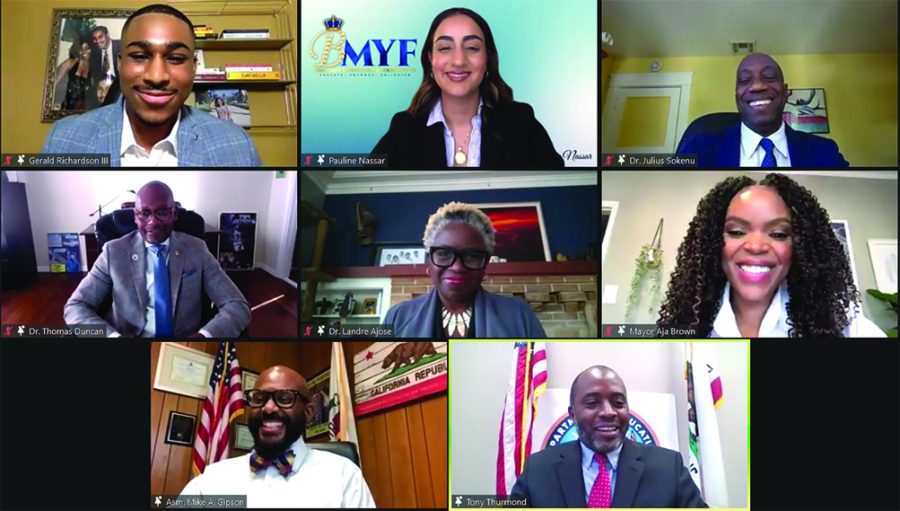
A panel on black identity in leadership was held and moderated by Moorpark College on Feb. 18.
Dr. Julius Sokenu, President of Moorpark College, Gerald Richardson III, the Black Student Union President, and Pauline Nassar, a member of Brilliant Minds Youth Foundation, took their turns to ask the panelists questions.
The panelists of the event were Tony Thurmond, the California State Superintendent of Public Instruction; Mike A. Gipson, California State Assembly member in the 64th District Assembly Democratic Caucus Chair; Aja Brown, the Mayor of Compton California, Thomas K. Duncan, a trauma medical director, Ventura County Medical Center Co-Director, and Anacapa Surgical Associates Immediate Past Chief of Staff, and Dr. Lande Ajose, Senior Policy Advisor for Higher Education for the Office of California Governor Gavin Newsom.
The BIPOC community, especially the black community, has faced and continues to face many injustices in this country. This panel touched on stereotypes, the panelists’ life experiences, and the journey to becoming black leaders.
The panelists’ first question was to share their journey and what strived them to succeed. “Growing up we didn’t have a silver spoon in our mouths. We grew up like everyone else grew up.”, Said Gipson.
Furthering education, Determination, and they want and need to help younger generations motivated some of the panelists to their success and leadership journey.
Ajose shared what she learned by becoming a leader and from her experiences, and still carries it to this day, “Determination is essential. Not taking no for an answer is essential. Being willing to speak truth to power is essential.”
Richardson asked the second question of if the panelists have an additional burden for being a black leader.
“It’s been ingrained in us that we have to always be as twice as better, work three times as hard, always be cognizant of the agency that we hold in the world, and we will always be reflected on differently than the masses, and that is due to anti-blackness,“ Mayor Brown answered.
“It is not a burden being black or a leader,” Gipson said. However, he does find it a burden that the black community has to be better and put in extra effort to be on time to meetings, get the best grades in school, be well-groomed, and put in extra effort for everything they do.
Black men and women are stereotyped as loud, rude, drug dealers, etcetera, in many media forms. The panelist shared their experience about how they have faced such stereotypes in their lives.
Both Ajose and Brown shared their experiences on facing stereotypes as being a black woman. Brown said that racism and sexism are layered together, and with them combined, it plays a part in the challenges she has faced with said stereotypes.
“2020 was the year of the black woman,” said Ajose when mentioning that black women are putting in the work and added that people started to notice the power of black women. They are unapologetic about their power and that it is the people’s problem if they find that intimidating.
Thurmond, Gipson, and Duncan shared their views and thoughts on stereotypes they face being black men.
Thurmond said that these stereotypes majorly start to affect African Americans from a young age beginning in the elementary school system and that racial bias has a play in this.
Gipson delivered a powerful message about his response to facing such stereotypes, “You never walked in my shoes. You don’t live in my community. You have not seen what I’ve seen.” He added that he would continue to raise his voice and be aggressive to get his point across to better his community.
“When I was younger, I was quite easy-going, and I still am to a certain extent, but I’ve learned over the course of time that you have to speak up. You have to speak up. Otherwise, you will be shoved under the rug, and your voice will not be heard.” Duncan said.








